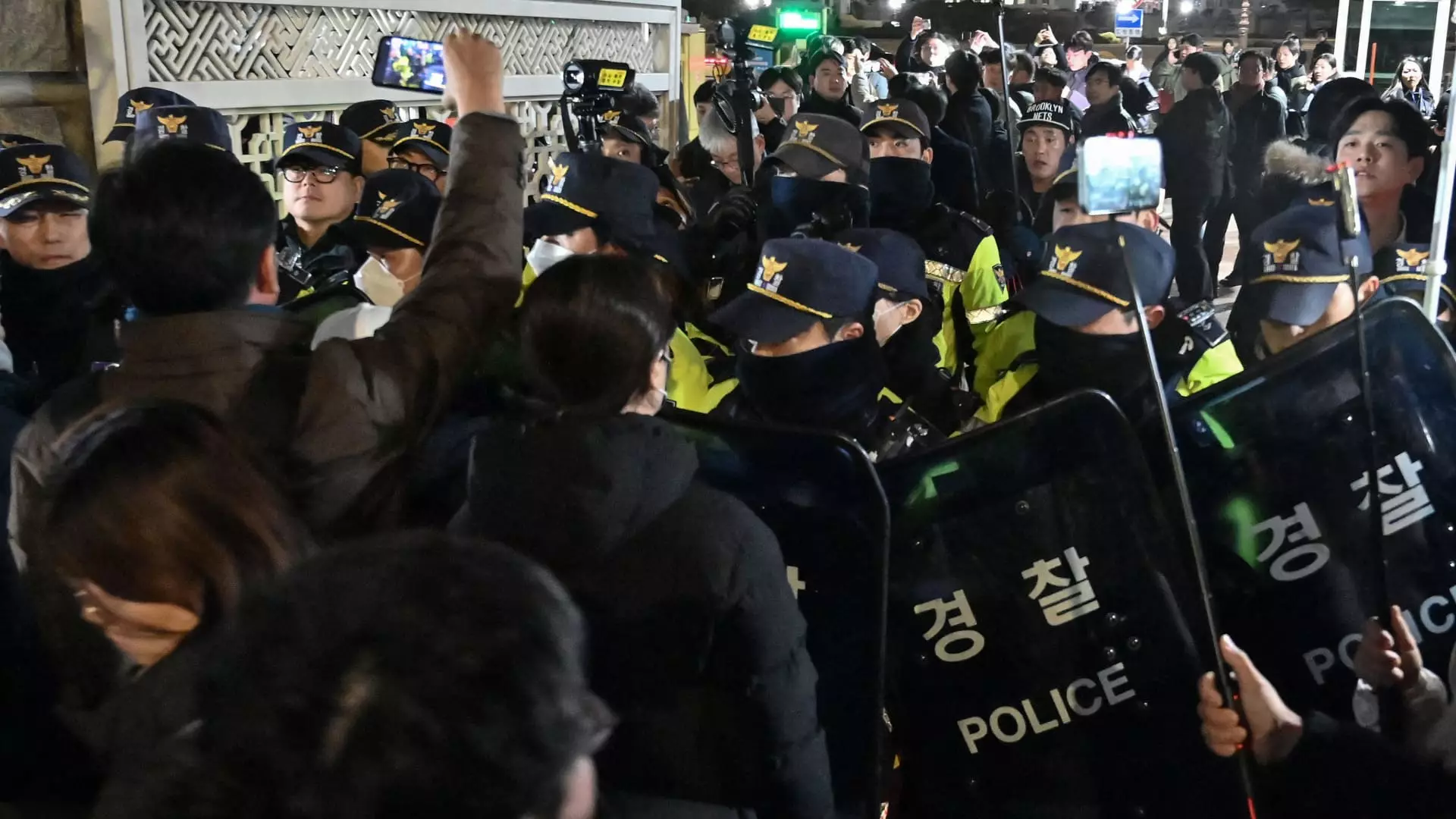On Tuesday, the financial landscape of South Korea experienced a jarring downturn, coinciding with President Yoon Suk Yeol’s alarming announcement of martial law. This dramatic move has sent ripples of uncertainty through the stock market, leading to a steep decline in investor confidence. As the world’s thirteenth largest economy, the implications of such a declaration are vast, sparking fears of instability in both political and economic spheres. The iShares MSCI South Korea ETF, which monitors over 90 significant companies, plummeted as much as 7%, marking its lowest point in a year. Such a stark decline raises crucial questions about the underlying health of the South Korean economy amidst political upheaval.
The initial stock market panic began to ease slightly after South Korean lawmakers moved quickly to challenge the president’s decree. In a noteworthy display of political maneuvering, 190 out of 300 National Assembly members assembled within hours to vote against the emergency powers granted to Yoon. By Wednesday morning, this rapid legislative action mitigated some of the earlier losses, with the ETF recovering to a 2.4% dip. However, while this vote may stabilize the immediate situation, it underscores a fractured political environment that could lead to further volatility in the future.
Key players in the market felt the brunt of the turmoil. Companies like Korea Electric Power and Coupang saw their American Depositary Receipts (ADRs) drop significantly, with losses of approximately 5% and 6%, respectively. Furthermore, KT Corporation and Posco also faced sharp declines, illustrating that the ripple effects of political instability are far-reaching, impacting even established corporations across varied industries.
This marks a historic moment in South Korean politics; it is the first time since 1980 that a sitting president has invoked martial law. The implications of such a move are profound, raising immediate concerns about the erosion of democratic norms and civil liberties. Under this martial law, any political activity deemed to “incite social disorder” is strictly forbidden, placing immense constraints on free speech and collective dissent. Yoon’s justification for such measures—accusing opposition parties of treasonous leanings towards North Korea—has only intensified fears of an authoritarian shift, echoing memories of South Korea’s past under military rule.
Adding to the market’s woes, the U.S. dollar surged by 1.9% against the South Korean won, reflecting a growing distrust in South Korea’s stability among global investors. This increase emphasizes the tangible effects of the political crisis on the country’s financial health. Analysts are now left to ponder the broader economic consequences that might unfold if these tensions continue to escalate. If investor sentiment remains shaky and the political divide widens, South Korea may face not just a precarious market, but a long-term economic challenge that could threaten its growth prospects.
As South Korea traverses this turbulent period, the nation stands at a crossroads. The balance between maintaining order and preserving democratic freedoms will be critical for the country’s future stability and economic health. The coming days will likely prove pivotal in determining both the political landscape and the economic trajectory of this vibrant nation.

